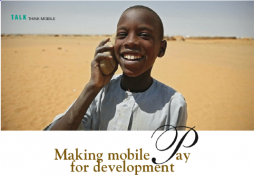bottom-of-the-pyramid
Posted by PrabhasPokharel on Oct 27, 2009
People in the developed world consider the phone a very personal object, something that is always on and always with us. In many developing countries, that's not always the case. People share phones, and many don't own handsets because they are too expensive.
A new company, Movirtu (with a catchy tag line: "Mobile for the next Billion"), wants to extend coverage to so-called bottom-of-the-pyramid customers by using a handset-independent way to connect to the mobile network. The company's goal is to "expand the use of mobile communication by the rural poor communities in Sub-Sahara Africa and South Asia living on less than $2 a day" - in order to improve their livelihoods. The method for doing this is to detach owning a phone number from owning a handset--and to allow users to own numbers without owning handsets. And its gaining attention: CEO Nigel Waller was awarded a PopTech Social Innovation fellowship this year, and Movirtu has been shortlisted for Africom's Changing Lives Award.
The idea
Posted by KatrinVerclas on Oct 25, 2008
This article, in a slightly revised version, was published by Orascom's TALK Magazine, Fall 2008.
There has been much talk of late about mobile financial services as a way to lift millions of people worldwide out of poverty. A recent article in The Guardian called mobile banking in developing countries “potentially revolutionary.” The advent of mobile financial services promises to bring many more poor people into an economic mainstream where safer and less costly financial services (such as person-to-person payments and remittances) are delivered over the cell phone. But is this promise anywhere near reality?
Transferring money via mobile phones can save days of travel for workers in cities who send money home to families in rural villages. Mobile payments are also often cheaper and more secure than relying on informal brokers or carrying cash personally, and they have the potential to change markets by making small business-to-business transactions immediate and more reliable.

